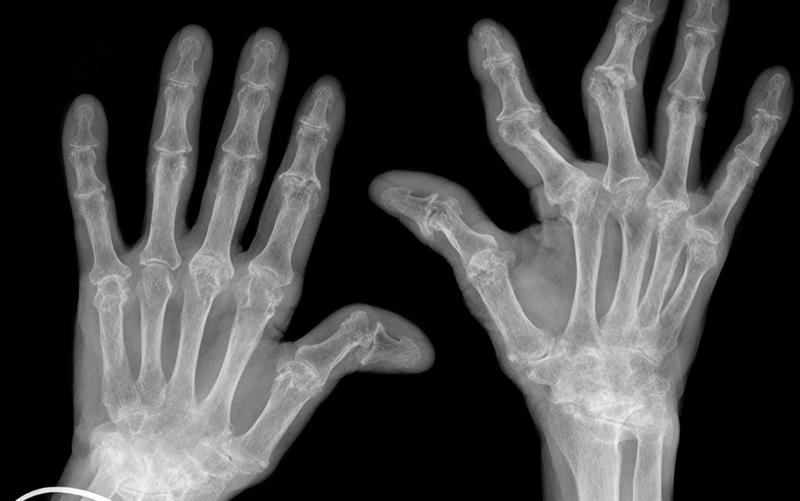Rheumatoid arthritis (RA) is a chronic inflammatory disorder that primarily affects the joints. It can cause painful swelling, stiffness, and loss of function, and over time, it may lead to joint damage and deformity. Recognizing the early signs and symptoms of RA is crucial for early diagnosis and treatment, which can significantly improve long-term outcomes. This article explores the initial indicators of RA, helping you understand when to seek medical advice.
1. Joint Pain and Tenderness
One of the hallmark symptoms of RA is persistent joint pain and tenderness. The pain often starts in smaller joints, such as those in the fingers and toes, before spreading to larger joints like the wrists, knees, ankles, and shoulders. The pain is typically symmetrical, meaning it affects the same joints on both sides of the body. This pain is usually accompanied by tenderness when pressing on the affected joints.
2. Morning Stiffness
Morning stiffness is another classic symptom of RA. Individuals with RA often experience stiffness in their joints upon waking up, which can last for 30 minutes or more. This stiffness can also occur after prolonged periods of inactivity, such as sitting or lying down. Unlike the stiffness associated with other forms of arthritis, RA-related stiffness tends to persist for a longer duration and is more severe.
3. Swelling and Warmth in Joints
Inflammation caused by RA can lead to noticeable swelling in the affected joints. The joints may feel warm to the touch, and the swelling can cause a puffy appearance. This symptom is a result of the body’s immune system attacking the synovium, the lining of the membranes that surround the joints, leading to inflammation and excess fluid production.
4. Fatigue and General Malaise
Many individuals with RA report feeling unusually tired and fatigued, even after adequate rest. This fatigue can be accompanied by a general feeling of malaise or a sense of being unwell. The inflammation associated with RA releases cytokines and other inflammatory molecules that can cause systemic symptoms like fatigue, reduced energy levels, and a feeling of being run-down.
5. Low-Grade Fever
A low-grade fever is another common early symptom of RA. The chronic inflammation associated with the disease can trigger a mild fever, often accompanied by other flu-like symptoms such as fatigue and general malaise. If you experience persistent low-grade fever along with joint pain and stiffness, it’s important to consult a healthcare provider.
6. Loss of Joint Function and Range of Motion
As RA progresses, it can lead to a decrease in joint function and range of motion. You may find it difficult to perform everyday tasks that require joint movement, such as gripping objects, walking, or climbing stairs. This loss of function is due to the damage and inflammation in the joint structures, including cartilage and bone.
7. Numbness and Tingling
Some individuals with RA experience numbness and tingling in the hands and feet. This can be caused by inflammation compressing the nerves around the affected joints, leading to symptoms similar to carpal tunnel syndrome. These sensations can be particularly noticeable in the morning or after periods of inactivity.
8. Symmetrical Joint Involvement
RA typically affects joints symmetrically. This means that if one knee or hand is affected, the other one is likely to be affected as well. This pattern of joint involvement can help differentiate RA from other forms of arthritis, such as osteoarthritis, which may not affect joints symmetrically.
9. Rheumatoid Nodules
In some cases, individuals with RA develop rheumatoid nodules—firm lumps of tissue that form under the skin near affected joints. These nodules are most commonly found on pressure points, such as the elbows, forearms, or heels. They can vary in size and may be tender to the touch.
10. Weight Loss
Unintended weight loss can also be an early sign of RA. Chronic inflammation and the body’s increased metabolic demands can lead to weight loss. If you notice unexplained weight loss along with other symptoms like joint pain, stiffness, and fatigue, it’s important to seek medical evaluation.
If you experience any combination of the symptoms mentioned above, it’s crucial to seek medical attention promptly. Early diagnosis and treatment of RA can help prevent joint damage and improve long-term outcomes. Rheumatologists are specialists in diagnosing and treating RA and can provide appropriate management strategies, including medications and lifestyle modifications.
Conclusion
Rheumatoid arthritis is a complex and potentially debilitating disease, but recognizing the early signs and symptoms can lead to timely intervention and better management. Persistent joint pain, morning stiffness, swelling, fatigue, and other systemic symptoms should not be ignored. If you suspect you may have RA, consult a healthcare provider to discuss your symptoms and explore appropriate diagnostic and treatment options.

